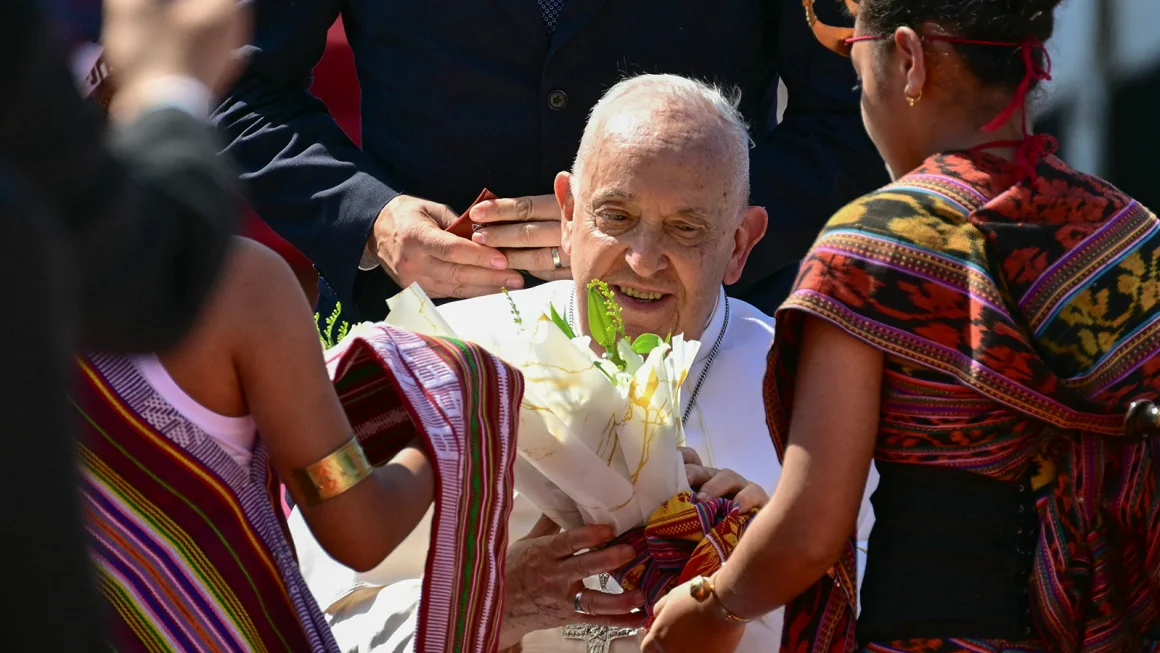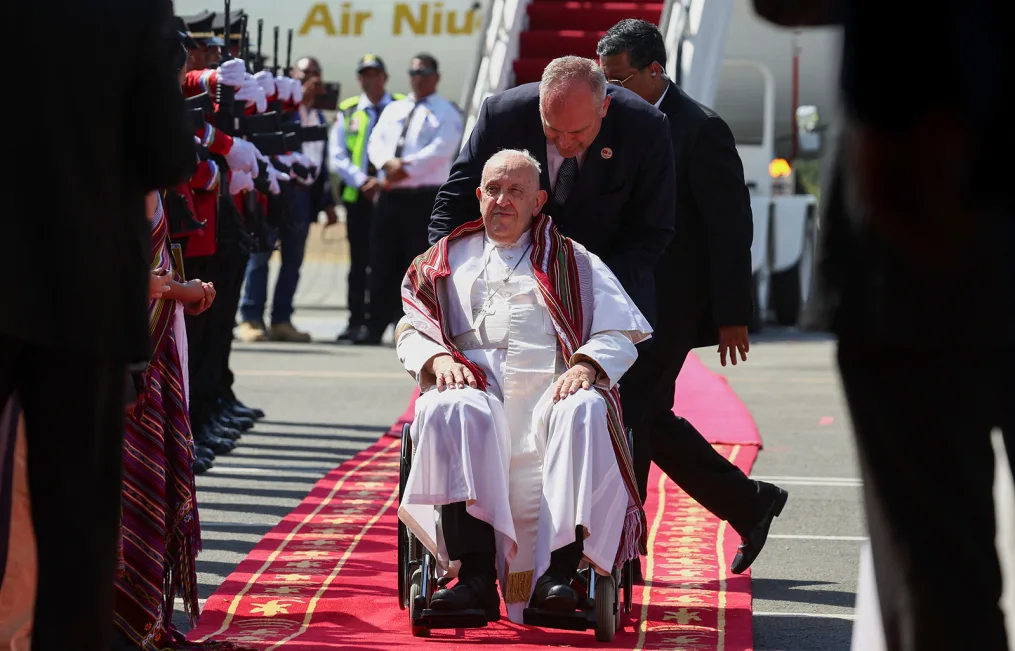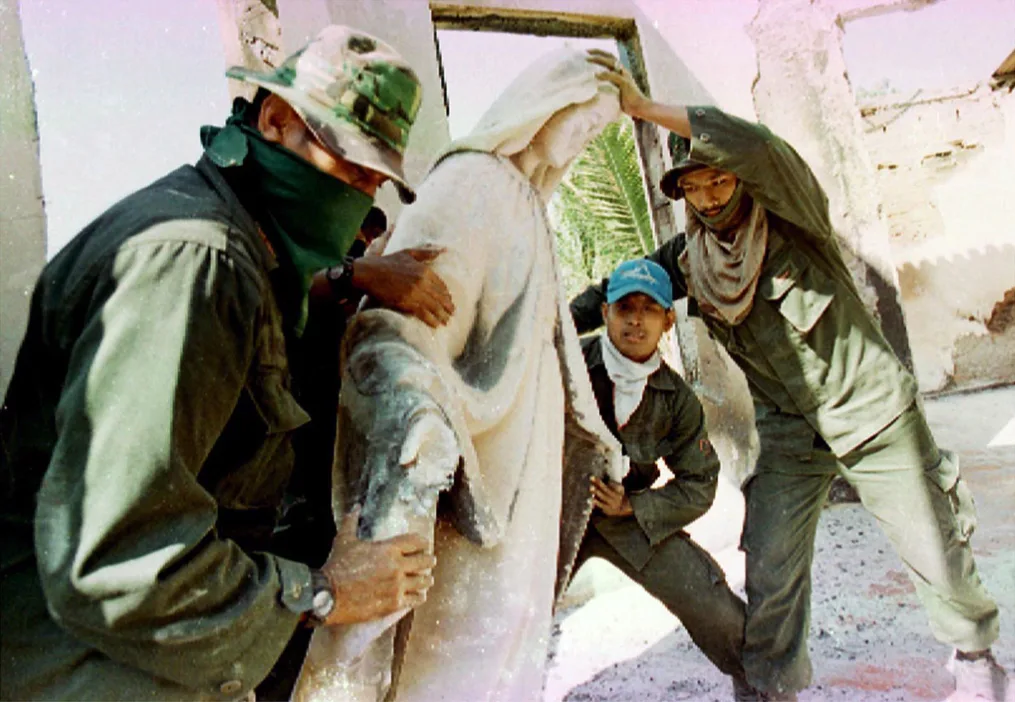Pope Francis arrives in the world’s largest Catholic nation outside Vatican City.

Thousands of Timorese lined the streets of Dili as Pope Francis passed by in his popemobile, greeted by cheering crowds. He is set to lead an open-air Mass for 750,000 people, more than half the country’s population.
The visit is overshadowed by recent revelations of clerical sexual abuse involving high-profile East Timor clergy. In his speech, the pope called on leaders to combat “every kind of abuse” and protect children.
East Timor, one of the world’s youngest nations, has deep Catholic roots, with 97% of its 1.3 million people identifying as Catholic—the highest percentage outside the Vatican.
East Timor’s government allocated $12 million for Pope Francis’ visit, a sum criticized as excessive for one of Asia’s poorest nations.
The visit also brings renewed attention to sexual abuse in the church. Two years ago, the Vatican quietly disciplined East Timorese bishop and Nobel laureate Carlos Ximenes Belo over abuse allegations.
While not on the official agenda, some analysts believe that if Francis addresses the issue, it could send a powerful message to survivors and those yet to come forward.

A Regional Stronghold of Catholicism
Pope Francis’ 12-day tour of Asia, including Indonesia, Papua New Guinea, East Timor, and Singapore, highlights the Catholic Church’s growing focus on the region. He is the second pope to visit East Timor, following John Paul II in 1989, and this marks the first papal visit since the country gained independence in 2002.
East Timor, located between Australia and Indonesia, was colonized by the Portuguese, who introduced Catholicism during their 400-year rule. Today, despite its reliance on oil and gas, the country still struggles with poverty and post-war nation-building, according to theologian Christina Kheng.

After Indonesian President Suharto’s fall in 1998, a policy shift led to a UN-sponsored referendum on East Timor’s independence, which passed with over 78.5% support in 1999.
Pro-Jakarta militias, backed by the Indonesian military, responded with violence, destroying infrastructure and forcing 200,000 people to flee.
An Australian-led peacekeeping mission intervened, and East Timor gained independence in 2002.
The Catholic Church played a key role in defending the people and pushing for independence, with church workers and clergy suffering greatly during the conflict.
